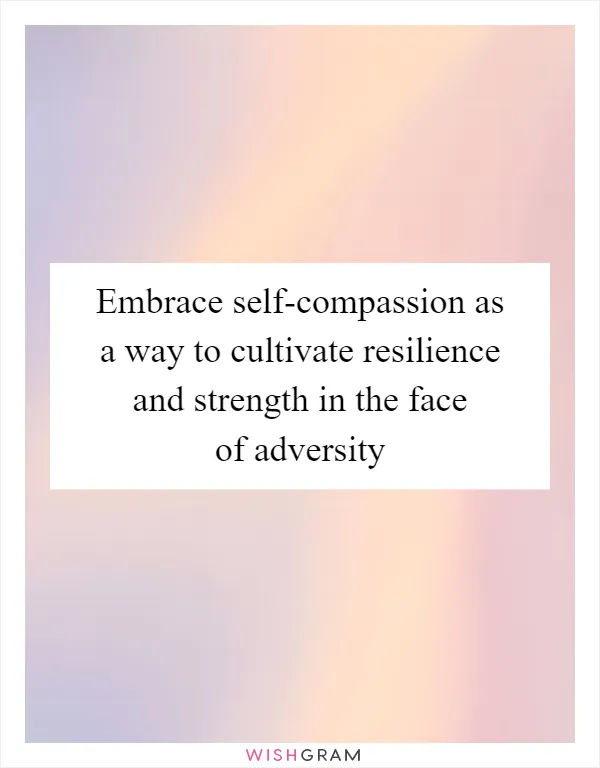Embrace self-compassion as a way to cultivate resilience and strength in the face of adversity
Self-compassion is a powerful tool that can help us navigate the challenges and difficulties that life throws our way. It involves treating ourselves with kindness, understanding, and acceptance, especially in times of struggle or failure. By embracing self-compassion, we can cultivate resilience and strength in the face of adversity.
When we practice self-compassion, we are able to acknowledge our own suffering and extend the same care and concern to ourselves that we would to a friend in need. This means being gentle with ourselves, recognizing our own humanity, and understanding that imperfection is a natural part of the human experience. By treating ourselves with compassion, we can build a strong foundation of self-worth and self-esteem that can help us weather the storms of life.
Self-compassion is not about self-pity or self-indulgence. It is about recognizing our own pain and suffering with a sense of kindness and understanding. It is about being mindful of our thoughts and feelings, and responding to ourselves with empathy and compassion. When we practice self-compassion, we are better able to cope with difficult emotions and situations, and we are more likely to bounce back from setbacks and challenges.
Research has shown that self-compassion is strongly linked to psychological well-being and resilience. People who are more self-compassionate tend to have lower levels of anxiety, depression, and stress, and they are better able to cope with adversity and bounce back from setbacks. By cultivating self-compassion, we can build a strong sense of inner strength and resilience that can help us navigate the ups and downs of life with grace and ease.
So how can we cultivate self-compassion in our own lives? One way is to practice self-kindness and self-care. This means treating ourselves with the same care and compassion that we would offer to a loved one. It means taking time to rest, relax, and recharge, and being gentle with ourselves when we make mistakes or fall short of our own expectations.
Another way to cultivate self-compassion is to practice mindfulness. Mindfulness involves being present in the moment and observing our thoughts and feelings without judgment. By practicing mindfulness, we can become more aware of our own suffering and respond to ourselves with kindness and compassion.
It is important to remember that self-compassion is a skill that can be developed and strengthened over time. It is not something that we either have or don't have; rather, it is a practice that we can cultivate and nurture in our own lives. By embracing self-compassion, we can build a strong foundation of resilience and strength that can help us navigate the challenges and difficulties of life with grace and ease.
